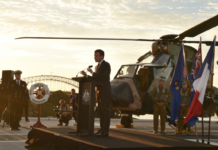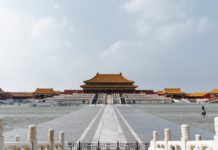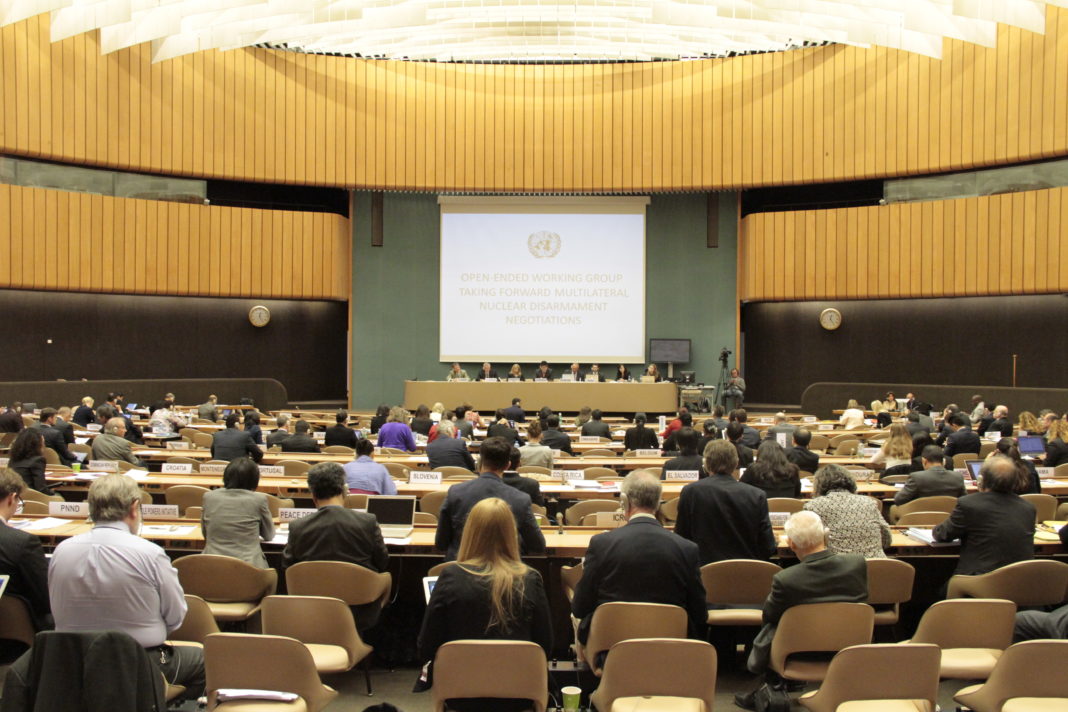Over the last decades disarmament has been relegated to the annals of the Cold War and has practically disappeared from policymaking circles (see The Third World Quarterly, The South and Disarmament at the UN). With the Soviet threat gone and the surge in intra-state conflict and non-state actors, the focus gradually shifted from eliminating stockpiles to controlling armaments. More recently, heightened geopolitical tensions and an international order in flux are leading to renewed military build-ups and modernisation programmes. But the recently UN-sanctioned Treaty on the Prohibition of Nuclear Weapons and ICAN’s Nobel Peace Prize are a brave reminder of the importance of disarmament initiatives.
To be true, support for disarmament rests primarily with a vibrant civil society that refuses to accept the premise, largely defended by the possessors of nuclear capabilities, that nuclear weapons are an essential pillar of the post-WWII international security order. This view is largely shared by non-aligned states who equally reject the existence of these weapons on grounds of inhumanity and the threat that their mere existence poses to civilisation. Working alongside each other, civil society movements such as ICAN and many other like-minded organisations have coalesced with a large number of state actors in the UN General Assembly to bring about the new treaty to ban nuclear weapons.
The signing of the Treaty represents a clear statement from the UN General Assembly that the Treaty on the Non-Proliferation of Nuclear Weapons (NPT) has failed to bring about disarmament, as contemplated in its Article VI. A new treaty is therefore needed, one that positions nuclear disarmament, as opposed to non-proliferation, at the centre of the agenda. But the new treaty has been born without the support of any member of the UN Security Council – all possessors of nuclear weapons – who have categorically rejected the initiative claiming that it poses a direct threat to the NPT Treaty and, by extension, to world peace.
Notwithstanding what may be legitimate concerns held by the nuclear haves – for it must be daunting to give up such a powerful capability – the reality is that military build-ups rarely, if never, contribute to reduce tensions and preserve peace. This is the conclusion of a recent joint study by the Centre for International Studies and Diplomacy of the School of African and Oriental Studies (SOAS) and SIPRI, which calls for the ‘rehabilitation of disarmament and arms control mechanisms as a cornerstone of national security and international stability’.
This is not a mere theoretical debate, but one which is needed precisely because of the real, serious practical implications of living under the current status quo. At the signing ceremony of the new Treaty the UN Secretary-General António Guterres stated that “The Treaty is an important step towards the universally-held goal of a world free of nuclear weapons. It is my hope that it will reinvigorate global efforts to achieve it.” It is a noble enterprise, but for it to be successful it requires the political will of the nuclear powers, which can only be achieved through the pursuit and implementation of cooperative security strategies.




























